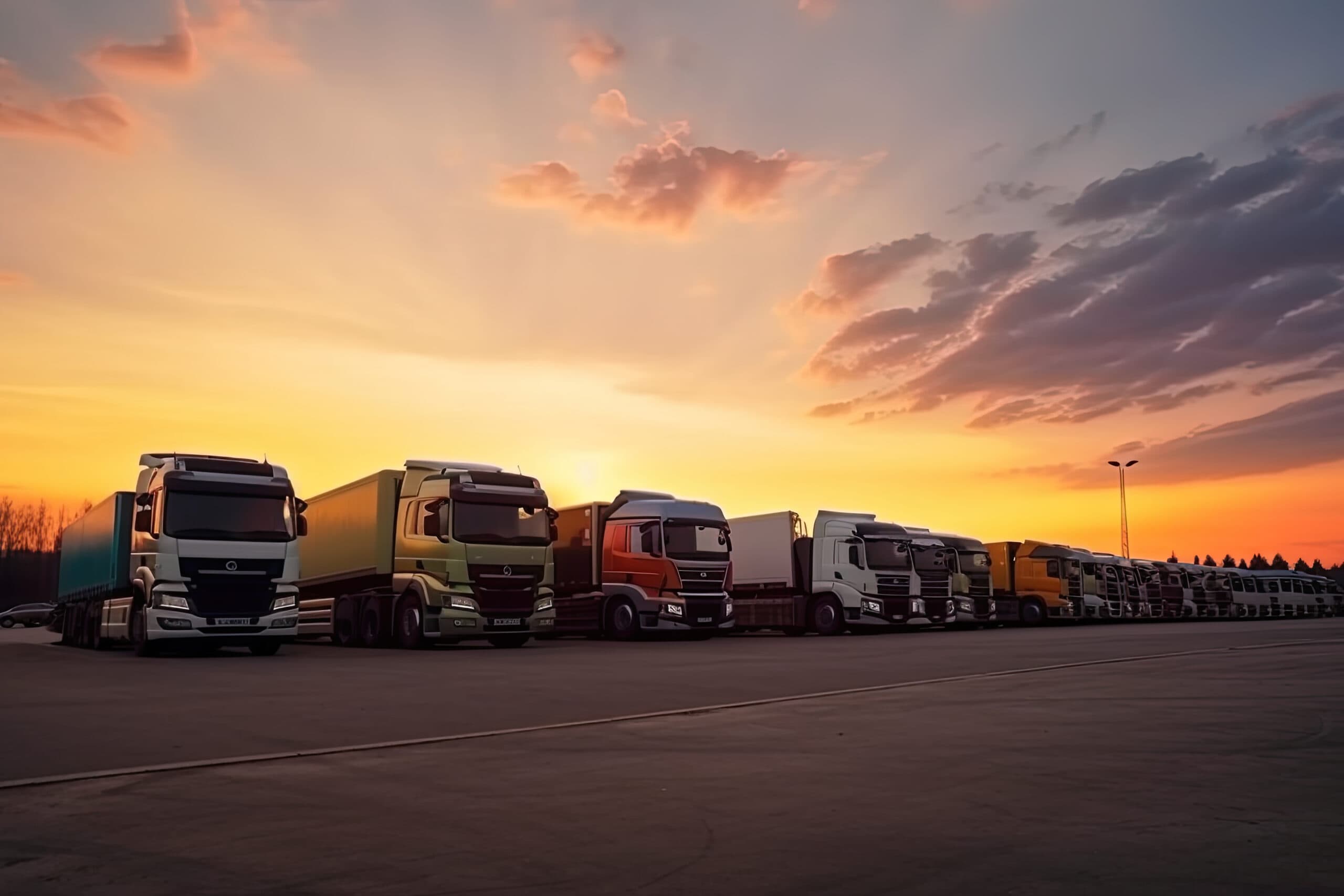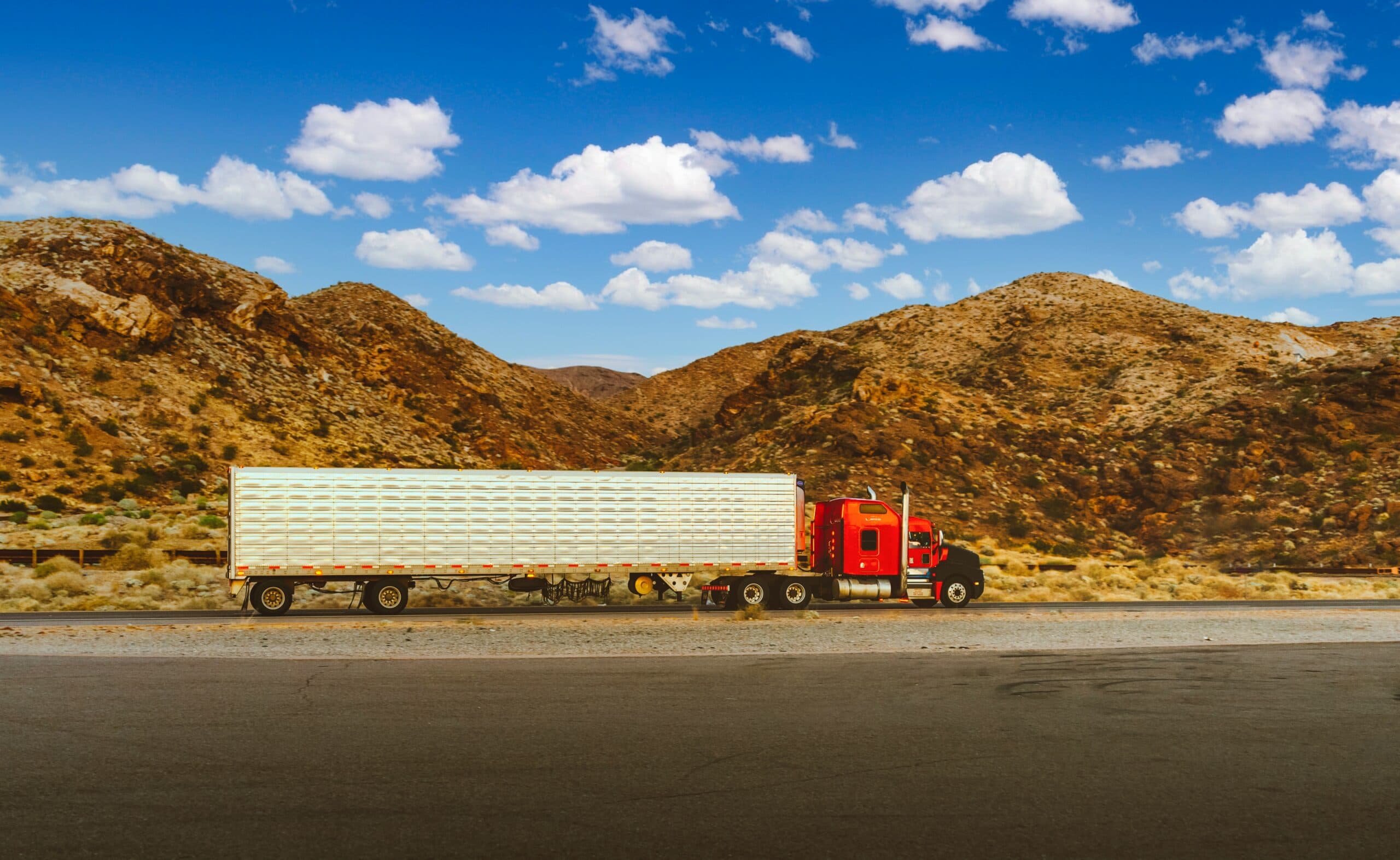Independent trucking company are often called independent trucking firms or owner operator trucking companies. The businesses that operate and manage their fleet of trucks to transport goods and cargo. These companies are distinct from larger, corporate trucking companies and are typically smaller in scale. The ownership and management often rest in the hands of a single owner or a small group of individuals.
Importance of the Trucking Industry
The trucking industry plays a vital role in the global economy and is crucial for efficiently transporting goods and services. The trucking industry is a cornerstone of modern society, enabling the efficient movement of goods, supporting economic growth, and enhancing our quality of life. Its significance is evident in its wide-ranging contributions to commerce, job creation, and the overall well-being of communities and nations.

Historical Context
A significant change occurred in the trucking industry in the United States in the middle of the 20th century. This revolution transformed how goods were transported and profoundly affected the American economy and transportation system. This industry was heavily regulated and dominated by large, established carriers. These carriers had significant control over pricing, routes, and market access, often leading to inefficiencies and higher transportation costs. The industry was subject to strict regulations, including the Motor Carrier Act of 1935, which aimed to curb competitive practices and set freight rates.
Challenges Faced by Independent Truckers
Independent truckers, often referred to as owner operators, face various challenges in their profession. At the same time, they enjoy greater autonomy compared to truckers working for larger carriers. They also encounter unique difficulties that can impact their livelihoods.
Financial Pressures:- Independent truckers are responsible for purchasing and maintaining their trucks, which can be a significant financial burden. Fuel costs, insurance premiums, maintenance expenses, and truck payments contribute to their financial challenges.
Regulatory Compliance:- Trucking is heavily regulated, and owner-operators must navigate a complex web of federal, state, and local regulations. Compliance with safety regulations, hours-of-service rules, and emissions standards can be challenging and time-consuming.
High Operating Costs:- Independent truckers often face higher per-mile operating costs than large carriers. This includes expenses for maintenance, fuel, permits, tolls, and taxes.
Health and Well-being:- Long hours on the road can affect a trucker’s physical and mental health. Irregular sleep patterns, unhealthy eating habits, and limited exercise options can lead to health issues.
Market Competition:- Independent truckers must compete with larger carriers for contracts and shipments. Established carriers often have more resources, equipment, and negotiating power, making it harder for independent operators to secure profitable contracts.

Factors Driving the Revolution
Much of the success of the independent trucking industry transition can be attributed to a combination of factors. Among these, technological advancements have emerged as a central driving force. Innovations in GPS tracking, route optimization software, and mobile applications have revolutionized the way independent truckers operate, enhancing their efficiency, safety, and overall effectiveness. These technologies enable real-time monitoring, streamlined communication, and data-driven decision-making. Empowering independent trucking companies better to meet the evolving demands of a modern logistics landscape. As a result, this sector has witnessed unprecedented growth, highlighting the indispensable role that technology continues to play in reshaping the future of independent trucking.
Technological Advancements
The trucking industry has changed due to the widespread adoption of GPS and navigation systems, which have improved route optimization and fuel efficiency. In addition to enhancing safety and compliance, the ELD mandate, a legal requirement for electronic logging devices, has also ushered in an era of data-driven insights. The emergence of smartphone apps for freight matching has completely changed how independent truckers interact with shippers, streamlining processes and boosting productivity. These technical developments are the main forces behind the revolutionary change reshaping the market for independent trucking companies.
Regulatory Changes
In the dynamic landscape of the independent trucking company revolution, regulatory changes have played a pivotal role in reshaping the industry. The deregulation of the trucking industry was marked by transformative legislation in the late 20th century. Removing entry barriers and increasing competition enables countless entrepreneurs to launch their own trucking ventures. The Hours of Service (HOS) reforms, implemented to enhance safety and driver well-being, have imposed rigorous limits on driving hours and mandatory rest periods. While granting newfound freedoms to trucking enterprises, these pivotal regulatory shifts have also necessitated meticulous adherence to safety protocols. Thereby shaping the contemporary ethos of the independent trucking landscape.
Economic Factors
Economic issues have become increasingly important in the context of the independent trucking firm revolution in the logistics industry. A significant change in transportation techniques has been required due to the explosion in e-commerce, which is characterized by the quick spread of online retail. Because more people are buying things online, independent trucking companies are at the forefront of this shift. The growth of e-commerce has given trucking companies a wealth of opportunities and some unique challenges. That has compelled them to adapt and optimize their operations to meet the continuously increasing demand for prompt and efficient deliveries. Ultimately changing the economic dynamics of the sector.
Environmental Considerations
In the realm of environmental considerations, the independent trucking company revolution is steering toward a transformative era marked by two distinct trends. Firstly, there is a persistent push for sustainable transportation practices, where companies are increasingly embracing eco-friendly initiatives to reduce their carbon footprint. From optimizing route planning to adopting fuel-efficient technologies, these independent trucking firms are actively contributing to mitigating environmental impacts. Secondly, the emergence of electric and autonomous trucks is poised to revolutionize the industry further. These cutting-edge vehicles not only promise significant reductions in greenhouse gas emissions but also offer the potential for enhanced efficiency and safety on the road. The independent trucking sector takes bold strides in championing sustainable transportation and embraces the electrifying promise of autonomous trucks. It becomes evident that environmental consciousness is at the core of their modernization journey.

Benefits of Independent Trucking Companies
The rise of independent trucking companies has sparked a revolution in the transportation industry, bringing many benefits. Firstly, these companies enjoy increased autonomy and flexibility as they are not bound by the rigid schedules and regulations often imposed by larger corporations. This autonomy allows for more personalized service and fosters a sense of self-reliance and decision-making prowess among independent trucking entrepreneurs. Moreover, the profit potential for these ventures is substantial, enabling individuals to reap the rewards of their hard work and investment. The enhanced entrepreneurial spirit within the industry has led to innovative solutions and improved services, ultimately benefiting both businesses and consumers. These trucking companies are crucial because they help in making more jobs available. They also support small businesses, which is essential for their success. Overall, they play a significant role in the growth and well-being of communities nationwide.
The Future of Independent Trucking
In the independent trucking company revolution, aspiring entrepreneurs face many formidable challenges and obstacles that demand unwavering determination and strategic insight. One of the foremost hurdles confronting these trailblazers is the relentless competition posed by industry giants. The Large Carriers, whose vast resources and established market dominance can overshadow the budding independents. Running a trucking business is tough due to many rules that keep changing. It takes work to balance following these rules and staying flexible. Also, buying and maintaining trucks costs a lot, making it tough for small trucking companies. This, along with increasing costs, makes success challenging for these entrepreneurs.
Moreover, these entrepreneurs have to deal with rising expenses for maintaining and running their trucks. These challenges make it hard for them to succeed in their businesses. Managing a trucking company is difficult due to constantly changing rules and the need to balance Compliance with flexibility. Buying and maintaining trucks is expensive, especially for smaller companies. On top of that, the increasing costs of operation and maintenance pose significant challenges for these entrepreneurs, making success an uphill battle.
Conclusion
The independent trucking company revolution has undeniably reshaped the landscape of the trucking industry. As we’ve seen in our exploration, independent truckers have emerged as a formidable force, offering flexibility, efficiency, and a more personalized approach to freight transportation. Their importance cannot be overstated, not only for their role in driving economic growth but also for preserving a diverse and competitive trucking ecosystem. As we peer into the future of trucking, it becomes clear that supporting and nurturing independent truckers is imperative. Their commitment to excellence and adaptability will continue to play a pivotal role in meeting the evolving demands of our global economy. Independent trucking companies are crucial for the industry’s success and growth. We want to create the right conditions for these small businesses to do well, ensuring a bright future for the entire trucking industry.
About Booker Transportation
Booker Trans is 100% Owner Operator. It is our belief that an Independent Owner is the best way to get a customers freight delivered timely and safely. Booker is a leading Refrigerated Carrier providing the best lease options in the industry for today’s Owner Operators. Monthly and Yearly Awards, Longevity Bonuses, and the Free tires for Life of Lease Program, are just a few examples of what Booker Trans offers the Owner Operator. Booker Trans has built it’s success upon working partnerships with Customers, as well as Agency Relationships built over the last 20 years. Those same relationships are what makes consistent year round freight possible.
Are you interested in becoming an owner operator driver or getting into the logistics industry?
Let’s connect!
Navigating the Highways of Change
04/18/2024

Owner Operators should be prepared for Cellular Service outages!
03/06/2024

